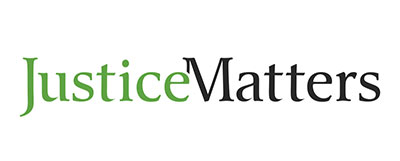Legal
Lola Waterman Esq. on Elder Abuse

One out of ten adults over the age of 65 have experienced some form of elder abuse, according to the U.S. Department of Justice. https://www.justice.gov/file/1098056/download. By year 2060, the U.S. Census Bureau projects that 95 million Americans will be aged 65 or older. In a study conducted by the New York State Office of Children and Family Services, only 1 out of 24 elder abuse cases are actually reported to authorities. Are these staggering numbers a reflection of our society’s views on honoring and revering our elders?
The New York State Legislature has identified various forms of elder abuse which include physical, sexual, emotional abuse, active, passive or self-neglect, and financial exploitation. New York Social Services Law, Section 473, defines “physical abuse” as the non-accidental use of force that results in bodily injury, pain or impairment, including but not limited to, being slapped, burned, cut, bruised or improperly physically restrained. “Sexual abuse” is the non-consensual sexual contact of any kind, including but not limited to, forcing sexual contact or forcing sex with a third party. “Emotional abuse” means willful infliction of mental or emotional anguish by threat, humiliation, intimidation or other abusive conduct, including but not limited to, frightening or isolating an adult.
“Active neglect” is the willful failure by the caregiver to fulfill the care-taking functions and responsibilities assumed by the caregiver, including but not limited to, abandonment, willful deprivation of food, water, heat, clean clothing and bedding, eyeglasses or dentures, or health related services. “Passive neglect” means non-willful failure of a caregiver to fulfill care-taking functions and responsibilities assumed by the caregiver, including but not limited to, abandonment or denial of food or health related services because of inadequate caregiver knowledge, infirmity, or disputing the value of prescribed services.
“Self-neglect” means an adult’s inability, due to physical and/or mental impairments to perform tasks essential to caring for oneself, including but not limited to, providing essential food, clothing, shelter and medical care; obtaining goods and services necessary to maintain physical health, mental health, emotional well-being and general safety; or managing financial affairs. “Financial exploitation” is defined as improper use of an adult’s funds, property or resources by another individual, including but not limited to, fraud, false pretenses, embezzlement, conspiracy, forgery, falsifying records, coerced property transfers or denial of access to assets.
Our society is in a state of crisis when one out of every ten adult over the age of 65 has experienced some form of abuse. Our government, both federally and locally, have been proactive in attempting to curb elder abuse but we, the people, must also do our part in protecting one of our most vulnerable citizenry. Hopefully, each of us will find ourselves in the elderly category someday, and it is important that we start practicing how we would like to be treated during that stage of our lives.
Check in regularly with elderly members of your family. Reach out occasionally to older adults who live next door to you, attend your church, or are known to you in the community. Stay vigilant because perpetrators and predators do. Remember, “To care for those who once cared for us is one of the highest honors!” (Quote from Tia Walker). If you suspect abuse or neglect, please contact the New York State Adult Protective Services at (212) 630-1853, or visit their website at www.ocfs.state.
The information provided in this article does not, and is not intended to, constitute legal advice and is for general informational purposes only. Readers of this article should contact their attorney to obtain advice with respect to any particular legal matter. The views expressed in this article are those of the individual author writing in her individual capacity only. I can be reached at lolaowaterman@gmail.com.

